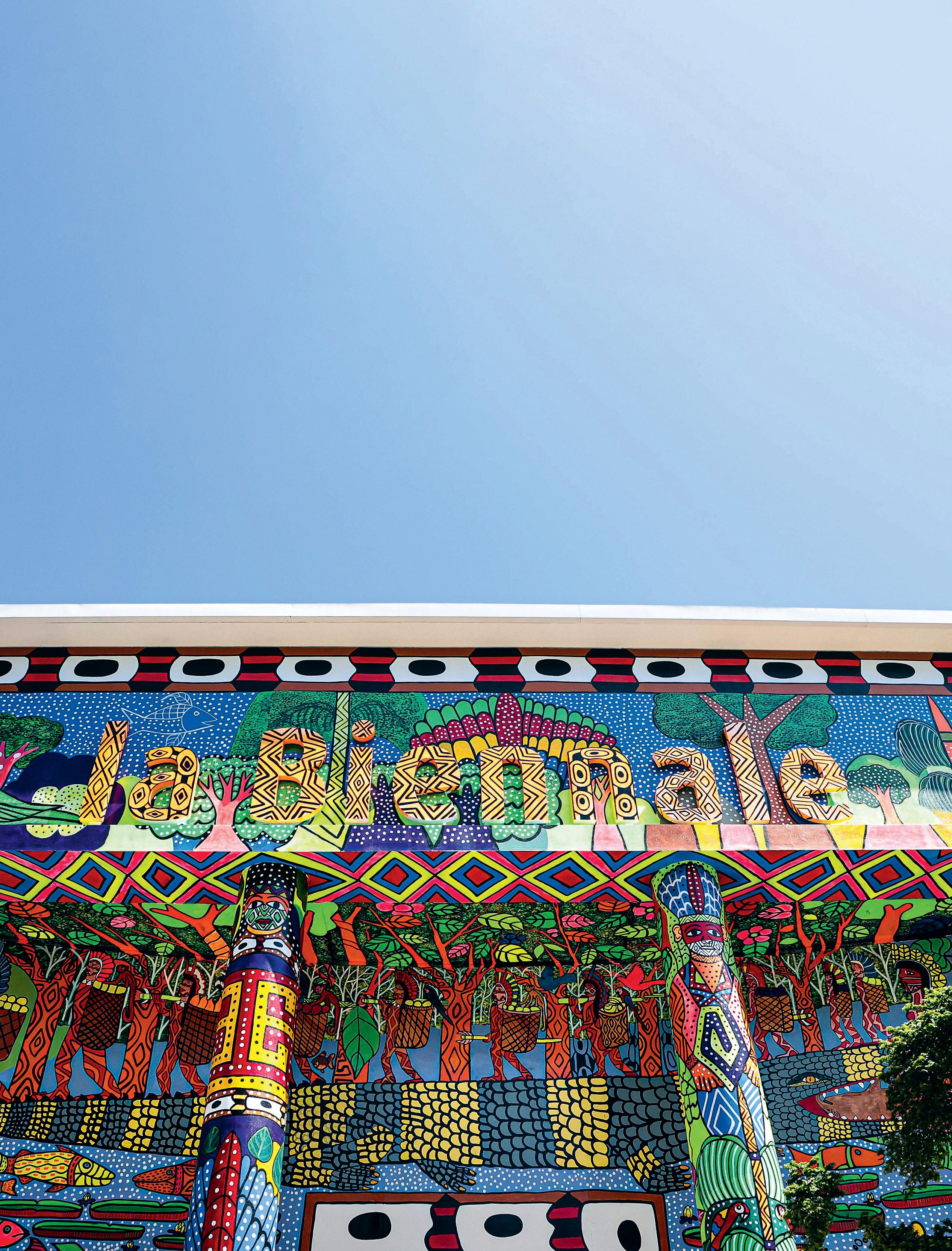Prøve GULL - Gratis
World in motion
The Guardian Weekly
|May 03, 2024
The Venice Biennale's 'foreigners everywhere' theme leaves Adrian Searle beguiled, tantalised - and frequently appalled

Venice. Terrible. Foreigners everywhere, and it is even worse during the biennale. Marked by unrest and protests, the 60th Venice Biennale leaves us uncertain of art's ability to draw us together in a world in crisis. It is filled with the clamour of conflicting voices and doubtful purpose.
On posters and on the sides of the water buses, written in neon and hung in the entrances to the central pavilion in the Giardini and to the Arsenale, the phrase Foreigners Everywhere, written in languages living, endangered and dead, is ubiquitous. Dangling in a roofed-over section of the medieval dock, the words multiply, reflecting brightly in the waters below with a cheer that belies a general unease. Often muttered in under-the-breath complaint, Foreigners Everywhere also celebrates difference, and the multiplicity of voices that fill the city. It also provides the title to curator and artistic director Adriano Pedrosa's keynote exhibition.

The phrase is also an ongoing work by Palermo-based "readymade artist" Claire Fontaine. Claire Fontaine (who are actually a duo) have lent the phrase's pungency and ambiguity to a biennale that I wish were so succinct. There are longueurs. There are detours and incomprehensible delays. Interrupted by strange encounters and chance meetings, occasionally we are astonished and beguiled, led astray, tantalised and sometimes shocked.
Every one of us is a foreigner somewhere, often even when we are at home.

Denne historien er fra May 03, 2024-utgaven av The Guardian Weekly.
Abonner på Magzter GOLD for å få tilgang til tusenvis av kuraterte premiumhistorier og over 9000 magasiner og aviser.
Allerede abonnent? Logg på
FLERE HISTORIER FRA The Guardian Weekly
The Guardian Weekly
My boyfriend's use of AI stops him thinking for himself
My boyfriend of eight years, who is 44, has ADHD and runs his own business.
2 mins
February 27, 2026

The Guardian Weekly
'Our land lets us all breathe clean oxygen'
The Congo River basin is home to a biodiverse ecosystem-and a relentless trade in timber and charcoal
3 mins
February 27, 2026

The Guardian Weekly
Nations apart: Andrew's UK arrest highlights US passivity on Epstein files
It is a tale of two nations.
2 mins
February 27, 2026

The Guardian Weekly
Under water: Engulfed by storms, but climate denial grows
In the week between Christmas and the New Year, two Spanish men in their early 50s - friends since childhood - went to a restaurant and did not come home.
3 mins
February 27, 2026

The Guardian Weekly
The crown in court
A brief history of royal run-ins with the law
3 mins
February 27, 2026

The Guardian Weekly
Big in Beijing
James Balmont's band, Swim Deep, plays to crowds of hundreds across the UK - but in China, they play to tens of thousands. And they're not the only ones
3 mins
February 27, 2026
The Guardian Weekly
Trump's Board of Peace is serving private interests more than public good
In Gaza, aid still trickles in at levels relief agencies say are far below what is required.
2 mins
February 27, 2026

The Guardian Weekly
Needle drops Weight-loss pills are here - and big pharma stands to gain
Oral tablets could bring obesity treatment into the mainstream, with the sector predicted to be worth $200bn by the end of the decade
6 mins
February 27, 2026

The Guardian Weekly
How Italians gradually warmed to their Winter Olympics
With the atmosphere in Rome subdued as the Winter Olympics unfolded across northern Italy, travelling to the Games was not on Amity Neumeister's radar.
3 mins
February 27, 2026

The Guardian Weekly
Fire and fury
Violence erupts as security forces kill feared cartel boss.
1 min
February 27, 2026
Listen
Translate
Change font size

